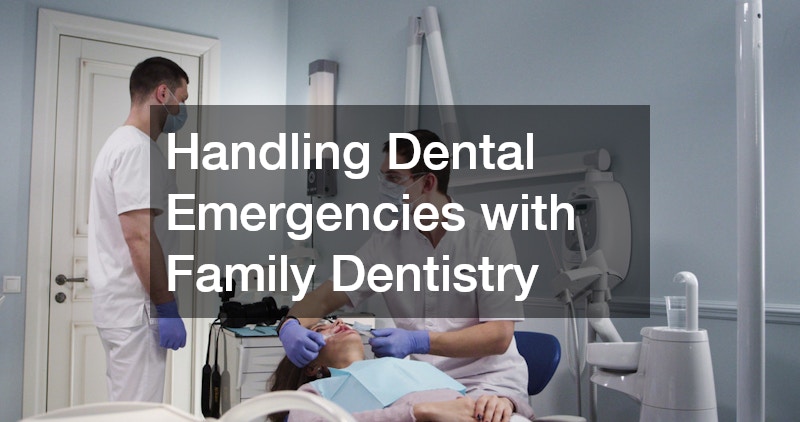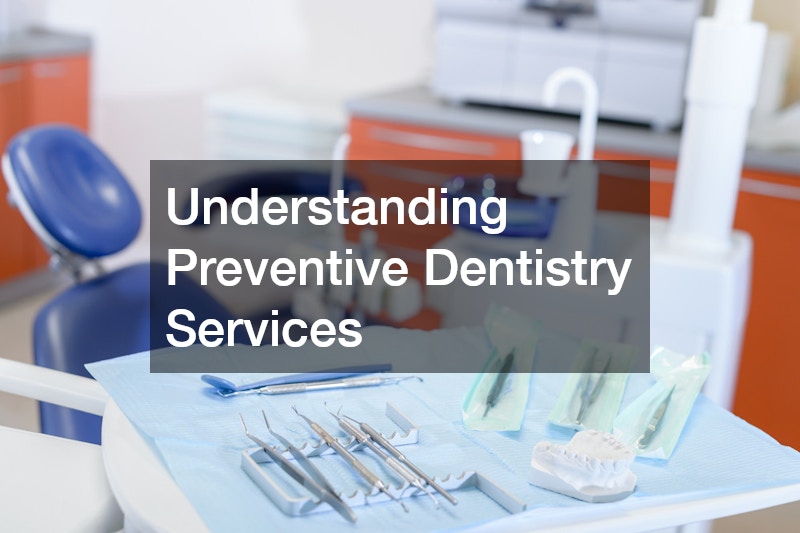
1. How to Choose the Right Family Dentistry Practice

Choosing the right family dentistry practice is crucial for maintaining optimal oral health. Consider the location of dental offices to ensure easy access for regular visits. A practice near home, school, or work can simplify scheduling for busy families. Look for a dental service that offers comprehensive care, including preventive treatments, orthodontics, and a dedicated pediatric office designed to make young patients feel comfortable.
When evaluating options, check if the practice accepts your health insurance company, which can help manage costs effectively. A welcoming atmosphere and a focus on children’s needs are key indicators of quality care. Many family dentistry practices create child-friendly environments with bright colors, interactive areas, and gentle communication tailored to young patients. Some even extend their services to community outreach, helping a homeless kid or underserved children receive essential dental care.
Online reviews, personal referrals, and insurance directories can all offer helpful insight when selecting the best practice for your family. A brief office visit or consultation can also reveal the professionalism of the staff and the overall comfort of the setting.
2. Preparing Your Child for Their First Dentist Appointment
Preparing your child for their first dental appointment is an essential step in fostering a positive attitude towards oral health and encouraging lifelong dental care habits. Begin by explaining what the visit will entail using age-appropriate language and emphasizing that the dentist is there to help keep their teeth strong and healthy. Be sure to highlight the importance of visiting the family dentist regularly to maintain a bright, healthy smile and to prevent problems before they start.
Books and videos about visiting the dentist can be helpful tools for familiarizing your child with the process. Many family dental offices provide materials or suggestions on how to prepare children and ease their fears. Setting expectations in advance can reduce anxiety and ensure your child’s first dental experience is a positive and memorable one.
Schedule appointments at a time when your child is well-rested and less likely to be irritable or anxious. Some family dentistry practices offer pediatric-friendly waiting areas equipped with toys, books, and activities. By creating a sense of familiarity and comfort, visits to the dental office can become something your child looks forward to and even enjoys.
3. Importance of Regular Check-Ups and Cleanings
Regular check-ups and cleanings are vital for maintaining oral health throughout all stages of life, and they play an even greater role in the early detection of potential dental issues. At each visit, your family dentist will assess your teeth, gums, and overall oral health, helping to maintain a bright and healthy smile year after year. Early and consistent dental visits are especially critical for young children, as they directly contribute to positive child development by promoting healthy habits, building confidence, and ensuring proper oral growth.
By having these regular assessments, potential issues can be detected early, preventing more extensive and costly treatments later on. Monitoring a child’s dental growth can also help identify developmental concerns such as misalignment or improper bite patterns, allowing for timely interventions that support overall health and well-being.
Professional cleanings remove plaque and tartar buildup that cannot be addressed by regular brushing and flossing at home. Family dentistry practices emphasize the importance of these preventive services in avoiding cavities, gum disease, and other common dental conditions. By making routine visits a family habit, lifelong dental wellness becomes a tangible and easily achievable goal that nurtures strong teeth and self-assurance in young children as part of their broader child development journey.
Your local dental service can also provide personalized advice tailored to your family’s specific needs and lifestyles. From fluoride treatments to oral hygiene tips, dentists guide families toward healthier habits and stronger teeth. With the right support system, addressing oral health concerns becomes simple, proactive, and highly effective for every member of the family, strengthening not just smiles but also overall child development through positive healthcare experiences.
4. Handling Dental Emergencies with Family Dentistry

Dental emergencies can happen to anyone at any time, so knowing when to call family dentistry services is crucial for minimizing pain and preventing long-term damage. Whether it’s a chipped tooth, severe pain, or unexpected swelling, a timely response is key to preventing further complications and preserving oral health. Having the contact information for your trusted dental office readily accessible is a wise precaution every family should take seriously.
In some situations, such as a knocked-out tooth or injury caused by an accident, immediate professional care is necessary to increase the chances of saving the tooth. Many family dentists offer emergency services or can refer you to pain management specialists to address urgent concerns quickly and efficiently. If necessary, an accident injury attorney might also be recommended to assist with insurance claims or legal matters.
Knowing how to manage a dental emergency until you can see your family dentist is also very important. For example, keeping a tooth moist if it’s been dislodged can significantly increase the likelihood of successful re-implantation. Educating every family member on these basic emergency responses can minimize the impact of a dental crisis and reduce long-term oral health consequences.
5. Tips for Managing Dental Anxiety in Children and Adults
Dental anxiety is a common issue that can affect both children and adults, hindering regular visits to the family dentist and negatively impacting long-term oral health. Identifying the source of anxiety is the first step in managing and ultimately overcoming it. For many individuals, fear stems from a lack of understanding, negative past experiences, or generalized medical anxiety related to unfamiliar environments.
One effective strategy is to discuss these fears openly with your family dentist during consultations and visits. Many dental offices offer options such as sedation dentistry, gentle techniques, distraction methods, and amenities like headphones or TV screens to create a more relaxed environment. Choosing a family dental practice that prioritizes patient comfort and emotional well-being can make an incredible difference for anxious patients.
Parents can also model positive behavior by showing enthusiasm and calmness about their own dental visits. Rewarding children after successful appointments with small treats or praise can create positive associations and reduce fear. With a compassionate dental team and a supportive family environment, overcoming dental anxiety becomes not only possible but sustainable for the future.
6. Teaching Good Oral Hygiene at Home
Teaching good oral hygiene habits at home is a cornerstone of family dentistry success and lays the foundation for a lifetime of healthy teeth and gums. Children often model their behavior after parents, so demonstrating proper brushing, flossing, and mouth-rinsing techniques is key. Making oral hygiene a family activity, where everyone brushes and flosses together, can turn a daily chore into a meaningful bonding experience.
Family dentists recommend using fun tools like colorful toothbrushes, flavored toothpastes, and brushing timers to encourage proper brushing duration among children. It’s also essential to educate children about the role of diet in dental health, teaching them how sugary snacks, sodas, and sticky foods can negatively impact their teeth.
Setting a consistent morning and evening oral care routine reinforces the importance of daily habits. Some dental offices even offer printed brushing charts or interactive apps to track children’s brushing habits, adding an element of fun and accountability. By establishing and maintaining these routines early, families set the stage for a lifetime of confident, healthy smiles.
7. Understanding Preventive Dentistry Services

Preventive dentistry services are designed to catch small problems before they become major issues, saving both money and discomfort over time. Services like fluoride treatments, dental sealants, and professional cleanings are commonly available offerings at family dental offices. Understanding these preventative options empowers families to make informed, confident decisions about their oral health care plans.
Sealants, for example, are thin coatings applied to children’s molars to prevent cavities in the deep grooves where toothbrushes may miss. Fluoride treatments work to strengthen enamel and resist decay, offering an added layer of protection. Your family dentist may also include oral cancer screenings as part of a regular check-up, ensuring comprehensive preventative care.
Preventive care often results in significant financial savings by avoiding costly restorative procedures later on. Family dentistry practices typically customize prevention plans based on each patient’s risk factors, age, habits, and dental history. Investing in preventative services ensures that your family enjoys strong, healthy teeth for many years to come.
8. The Role of Nutrition in Dental Health
Nutrition plays a pivotal role in maintaining dental health, and it’s a topic that family dentists often prioritize during patient education. A diet high in processed sugars and acidic foods can quickly erode enamel, leading to cavities, gum disease, and overall poor oral health outcomes. Conversely, consuming foods rich in calcium, phosphorus, and vitamin D helps maintain strong teeth and resilient gums.
Encouraging children to snack on fruits, vegetables, cheese, and nuts can make a noticeable, lasting difference in oral health. Drinking plenty of water, especially fluoridated water, is also highly recommended over sugary beverages such as soda and fruit juices. Family dentists can offer targeted nutritional advice during regular check-ups, helping families tailor their diets to optimize dental health.
Understanding the close connection between daily food choices and dental outcomes empowers families to make healthier decisions. Healthy eating, when paired with consistent oral hygiene habits, becomes a powerful, winning combination for achieving excellent dental health and building a beautiful, lasting smile.
9. Keeping Up with New Dental Technology
Staying informed about new dental technology can significantly enhance your family’s dental care experience, leading to faster treatments, improved comfort, and better long-term results. Advances such as digital X-rays, laser dentistry, and 3D imaging allow for quicker diagnoses and less invasive treatments with minimal discomfort. Many family dentistry practices are eager to adopt technologies that improve accuracy, safety, and patient experience.
Digital records also make it easier to track dental history, simplifying communication between providers and ensuring nothing is overlooked. Laser dentistry often reduces the need for drills and sutures, speeding up healing times and enhancing overall patient comfort. Intraoral cameras allow patients to see their teeth in real-time, making education and treatment planning more transparent.
When choosing a dental office for your family, inquire about the technologies they use and how they contribute to better care. Embracing innovation ensures your family benefits from the safest, most efficient treatments available today, setting the standard for modern dental care excellence.
10. Building a Long-Term Relationship with Your Family Dentist

Building a long-term relationship with your family dentist is essential for consistent, high-quality care, trust-building, and improved oral health outcomes over time. Regular visits allow your dentist to become deeply familiar with your family’s unique dental needs, habits, and medical history. This ongoing rapport leads to more personalized care, faster diagnoses, and stronger preventative strategies.
Trust is a cornerstone of effective healthcare, and a great family dentist fosters open communication, respect, and a welcoming environment that makes patients feel comfortable. Children, in particular, benefit from seeing the same friendly faces over many years, helping them develop a sense of security and confidence about dental care. Over time, what once felt like a stressful experience can evolve into a familiar, positive routine.
Many dental offices also offer family scheduling options, allowing multiple members to be seen on the same day for added convenience. With the right family dental practice, your household can enjoy a lifetime of healthy, bright smiles backed by compassionate, personalized attention.
By following these tips, families can ensure a positive experience with their family dentistry practice, paving the way for healthy smiles and lasting dental health. Taking time to research and choose a dental office that meets everyone’s needs helps prevent future stress and builds a strong foundation for ongoing care.
Understanding how to navigate these aspects equips families to address oral health needs effectively. From selecting a conveniently located office to evaluating pediatric and preventive care services, each decision contributes to long-term wellness. A trusted family dentistry practice that encourages open communication and patient education empowers families to play an active role in their dental health journey.

